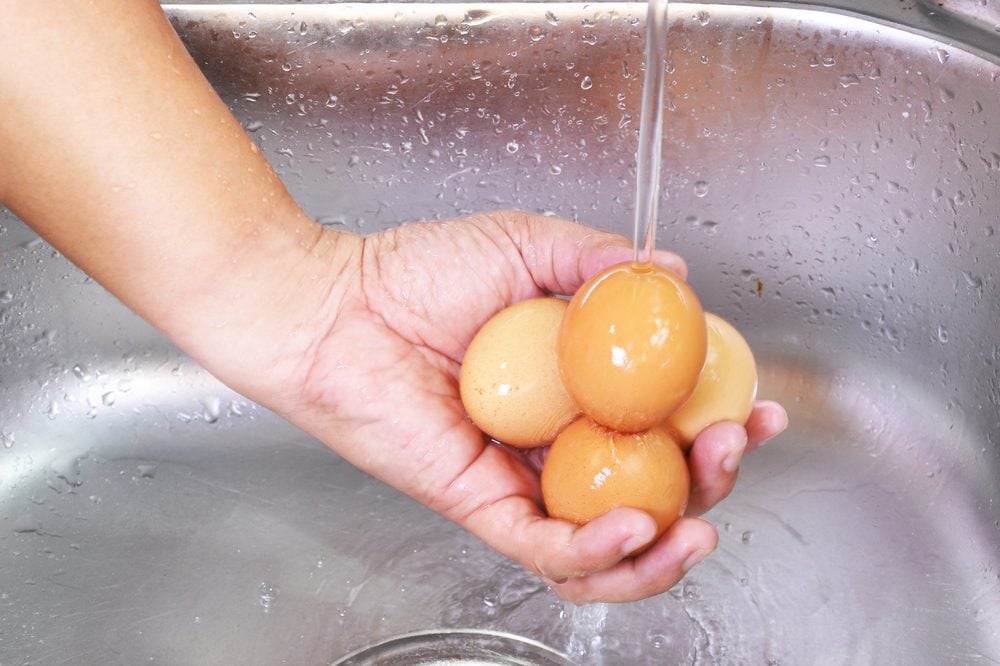Egg Should never be washed with water, Why?
- Some foods can carry health hazards after being treated
- The eggshell is characterized by being porous. In addition, it has a very thin layer of cuticle that waterproofs it, preventing germs from entering the food.
- We should not wash Eggs with WATER despite the fact that "we see their exterior covered with dirt, feces or straw."
The egg is possibly one of the foods that has generated the most controversy over the years. However, in recent years, thanks to multiple scientific investigations, many of the drawbacks have been ruled out. Thus, the egg has even been called a superfood.
Thus, one of its most important elements related to health is choline, very beneficial for the brain. This is a nutrient considered essential, its consumption is well below current dietary recommendations. This could be due in part to the fear of cholesterol that exists in society despite the lack of clear evidence. In addition, the egg is a really low-calorie food. One unit provides only 80 calories, although it should be noted that it will depend on how we cook it because these can increase.
The energetic value, however, is not only its great virtue. The egg also has many vitamins such as Vitamin A, B2, B5, B12, D, K and minerals such as phosphorus, iron, potassium and selenium. Although these will vary depending on the type, the way of raising the animal or environmental factors, they will surely be in high quantities. For example, depending on how a hen is raised, the content of Omega 3 may vary.
But the studies not only highlight the lack of harmful evidence of the egg. Other investigations, in addition, argue that more eggs than those recommended by the Ministry of Consumption can be included, these being very safe as part of a healthy and varied diet.
Should the egg be washed with water? / Should I wash my eggs before refrigerating?
Because its consumption has been used for centuries by humans, there are all kinds of recipes related to this important food. In Spain, for example, the fried eggs or the potato omelette stand out above the rest. In addition, there are many dishes around the world with the egg as an ingredient.
For this reason, a series of recommendations should always be followed so as not to have health problems related to the consumption of certain foods. In this sense, the Organization of Consumers and Users (OCU) warns that eggs are one of those foods that we should not wash eggs with water despite the fact that "we see their exterior covered with dirt, feces or straw."
Thus, the organization states that this gesture should not be carried out before storing them in the fridge, or when you are going to use them.
Thus, the eggshell is characterized by being porous. In addition, it has a very thin layer of cuticle that waterproofs it, preventing germs from entering the food. For this reason, if we wash the eggs with water, this layer can disappear, allowing the bacteria to penetrate to the interior of the egg. Thus, a number of serious health hazards could develop.
The OCU, in addition, also exposes a series of things that we must avoid related to the egg and health. When we go to cook we cannot let the outside of the egg stain the inside when cracking it. Nor should the shell be used to separate the white from the yolk or crack the egg on the edge of the container where you are going to throw it or eat it.
Other Headings:


